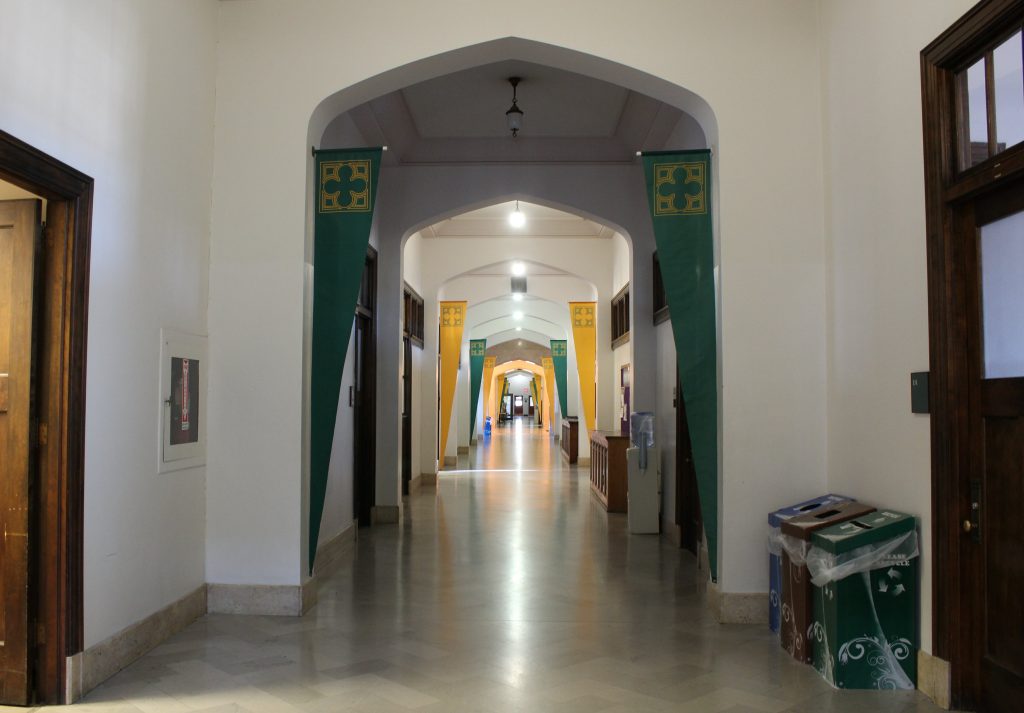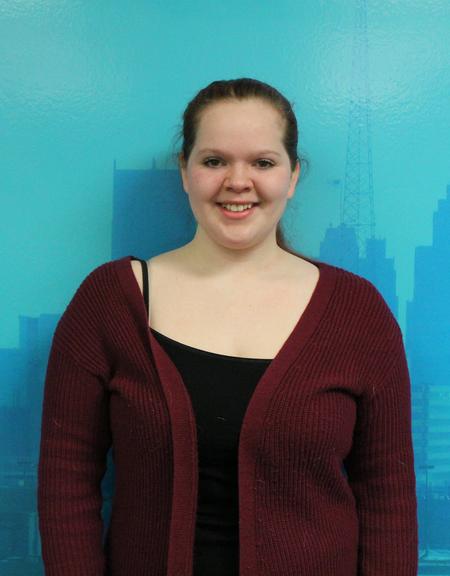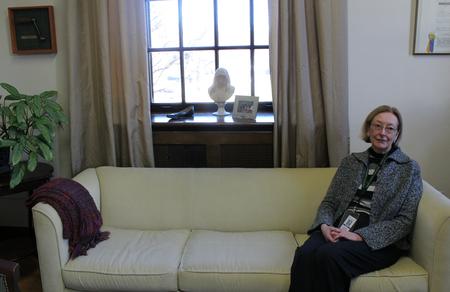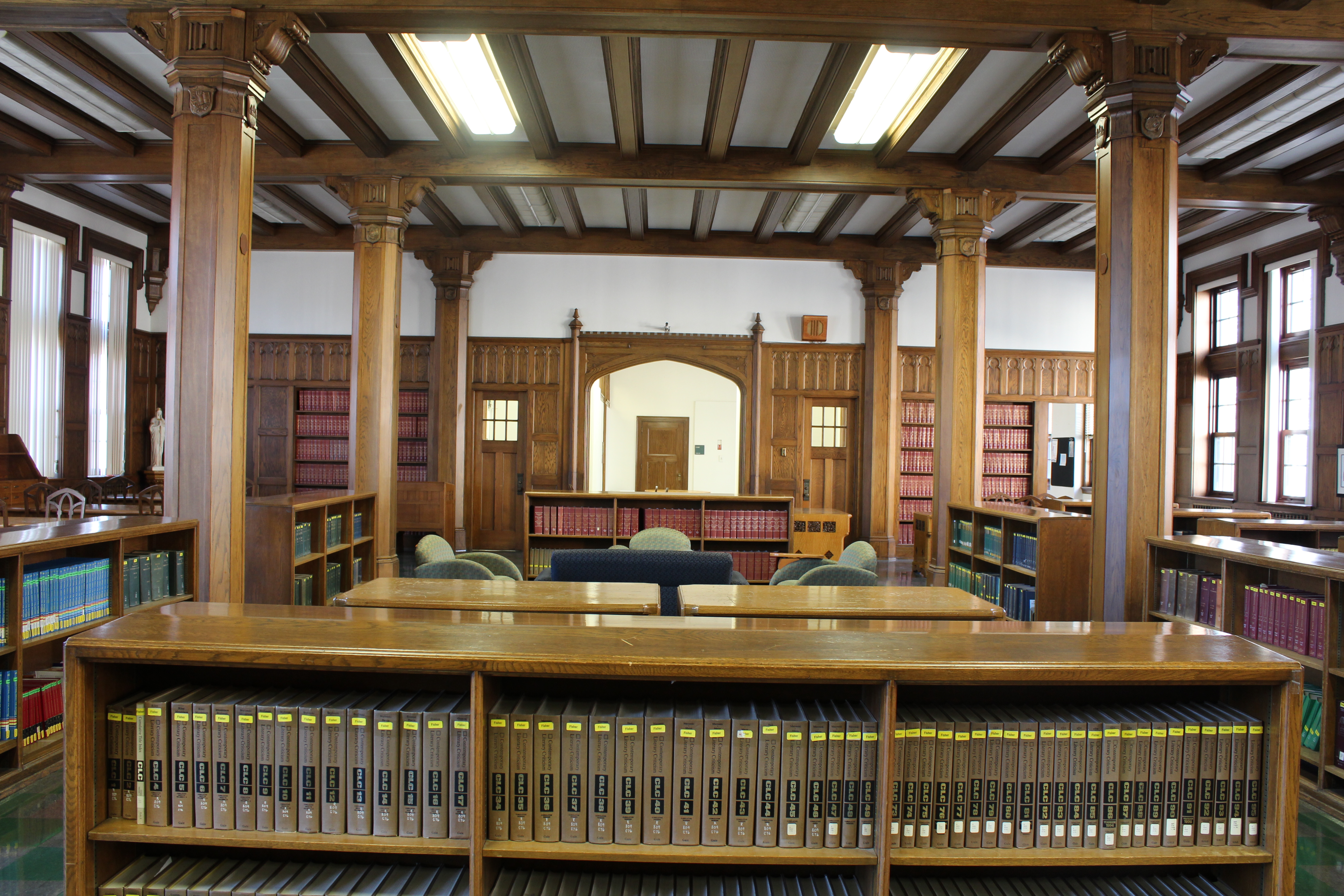Former Marygrove Undergraduates Find Paths to Graduation at Other Universities
“Teach out” agreements are required when school programs close before students can graduate.


This past summer, Emily Hill was getting ready to start her junior year at Marygrove College. She had moved from Pennsylvania to go to the private, Catholic liberal arts school in Detroit for its dance program. Once there, she ended up pursuing a double major in Dance and Psychology. She enjoyed the small class sizes and felt like she was getting a good education.
Then one day in August she got an email about an important Marygrove meeting. She had to miss the meeting because of work and didn’t think too much of it. But then she went on Facebook and saw her classmates freaking out.
“As I started to read it, I didn’t quite believe what it was saying,” said Hill. “And then it started to be clear that they intended to shut down the undergraduate program.”

Enrollment at the college had decreased to the point that it was no longer financially sustainable to continue operating. In 2013, Marygrove had 1,850 graduate and undergraduate students. In Fall 2016, total enrollment dropped to 966. As a result of the continuing decline, leaders of the college made a decision. They said they would still offer graduate and certificate programs on campus and online but they announced plans to shut down the school’s undergraduate programs at the close of the Fall 2017 semester.
“I understand the reason behind the school closing… but I just didn’t expect it,” said Hill. “It was really terrifying at first.”
In August, only 424 students were enrolled as undergraduates at Marygrove, a predominantly black college. A third of them transferred immediately, before the fall semester even began. Just under a third planned to transfer somewhere else at the end of the semester. About 100 other students were able to graduate in the final semester. And about 61 students were able to continue their education at nearby schools as part of something called a teach-out.
“The agreement in a teach-out program is that they will accept the Marygrove credits,” explains Marygrove President Elizabeth Burns. “So, if there’s a course at Marygrove that doesn’t quite fit with their curriculum, they may not accept it for a transfer student. For a teach-out student they’ve agreed to do that and sort of go the extra mile.”
The Higher Learning Commission, the organization that accredited Marygrove, requires schools and programs that are closing to negotiate teach-outs with comparable institutions in order to assist students nearing graduation. Marygrove made these types of agreements with Wayne State University, University of Detroit Mercy, University of Michigan-Dearborn and Madonna University. Marygrove students who have chosen to continue their education at these schools using teach-outs are to be offered comparable tuition. They will graduate with degrees from their newly chosen school rather than Marygrove.

Cam Cruickshank, executive vice president for enrollment management and university advancement at Madonna University, said Madonna officials agreed to a teach-out because, as decision-makers at a Catholic, liberal arts school, they saw the opportunity to help.
“It’s been a traumatic experience for everyone involved. It’s been difficult for the folks over at Marygrove. We’ve just been trying to do the best we can to make it seemless and as easy as possible so at least these students can continue their academic endeavors and work toward their educational and career goals,” he said.
Though Madonna does not currently offer the ability to major in dance, Hill will be beginning a semester there this week. Thanks to the special arrangement between the two schools, she will maintain all of the 90 credits she’s already earned at Marygrove, but she said she will have to take some extra classes in order to meet Madonna’s graduation requirements. Yet Hill said she sees a bright side to the situation.

“I feel like it will affect my future in a good way. I think that just this transition and all this frustration is probably kind of making me more resilient. I think it is, in the long run, a good thing. Just right now it is very frustrating. But I’m sure it’ll help me in some way,” Hill reflected.
Marygrove President Elizabeth Burns said throughout this process university administrators kept the students in mind.
“But it’s been very sad,” she said. “I meet alums all the time and they’re heartbroken as well that we made this decision after 90 years. But it is one that needed to be made.”
Burns, herself, is a Marygrove graduate.
Like Hill, Marygrove leaders are hoping the closure of the undergraduate programs will make them stronger. Officials will have just until the end of this year to figure out if the school can survive with the certificate and graduate programs it offers. In the meantime, they are looking for organizations who might like to rent out some of their land.
Inside Higher Ed reports that since October at least three small, private liberal arts colleges announced plans to close.
This story was updated 1/24/2018.
